The great fear drivers have is losing control of their steering wheel. Imagine you're enjoying a relaxing ride and decide to speed up a little; suddenly, the steering wheel shakes and moves on its own. With the help of experts, we can help you determine its cause.
The steering wheel is mainly used to maneuver and steer cars. A faulty and shaky one is a problem you should not take lightly. Regardless of your cruising speed, here are the common reasons why steering wheels shake at high speed.
- A stuck caliper can cause vibrations and shaking when your car reaches 40 miles per hour.
- Imbalance, loose connections, wear and tear in the suspension system
- Misaligned wheels can shake your entire vehicle from outer parts to steering wheels
- A broken motor mount can disrupt a car from running smoothly
If you have experienced this problem, chances are you still have some questions in mind. Keep reading this article as we further explain the answer above and as we tackle other related topics.
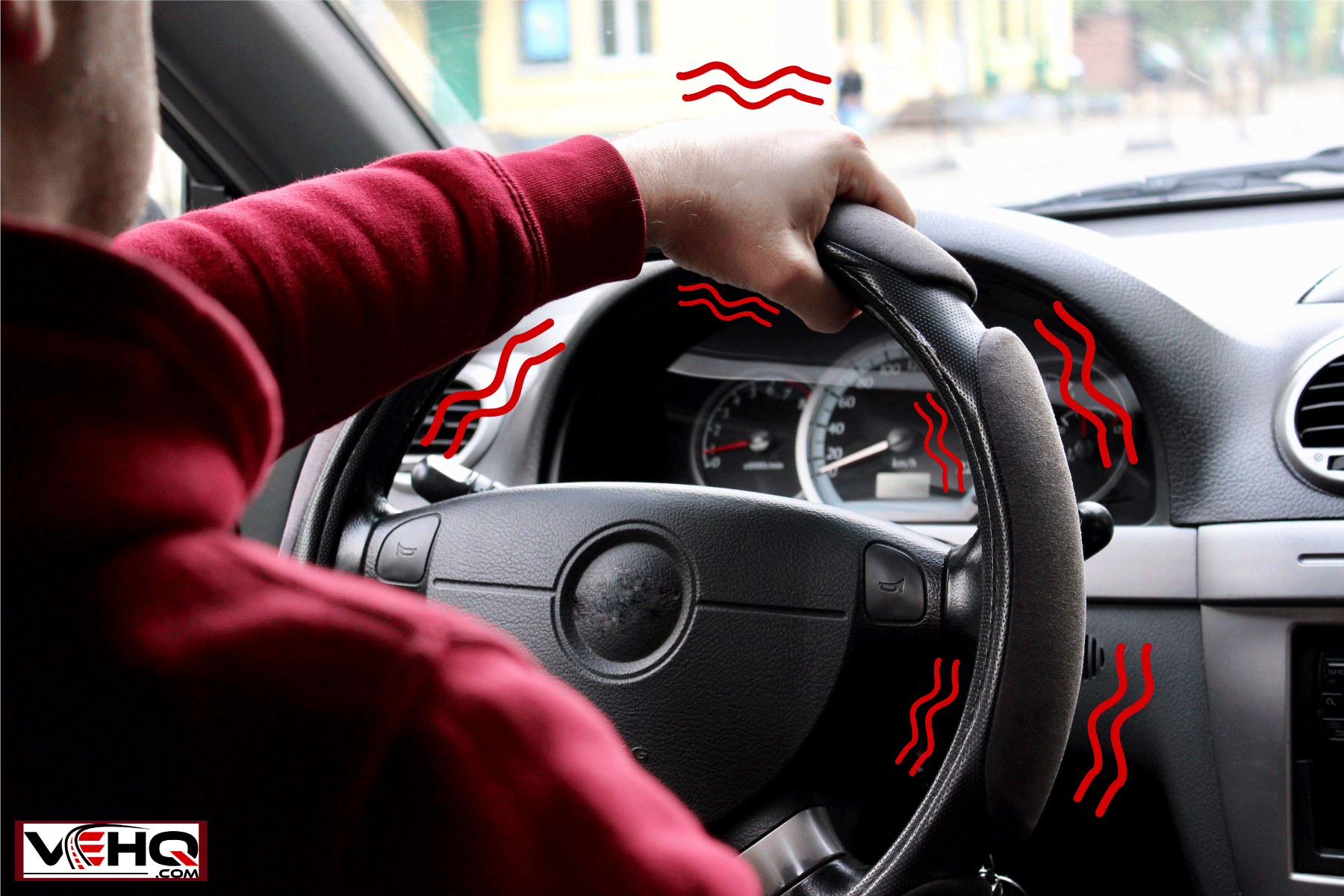
Causes and Solutions Of Shaky Steering Wheel At High Speed
Stuck Caliper
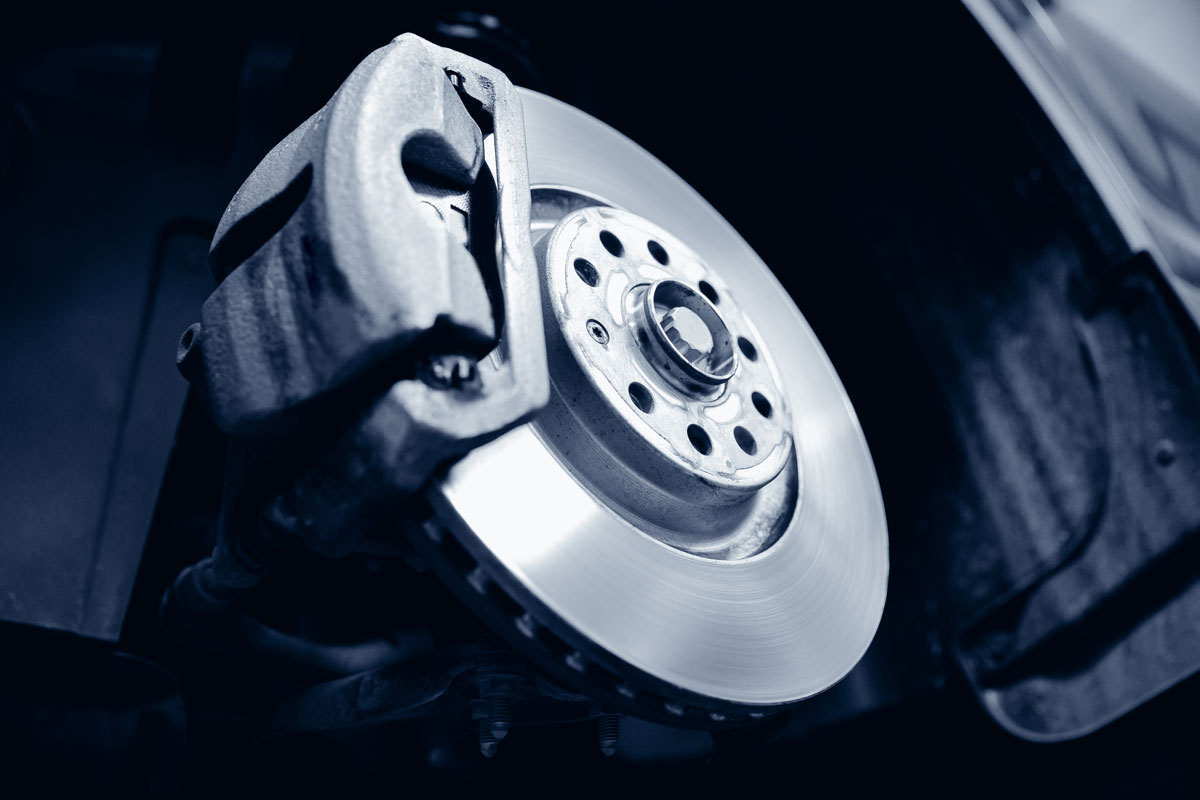
The caliper houses an automobile's brake mechanism, the brake fluid, pads, and pistons. These are responsible for creating friction which slows down the brake rotor and disc. A stuck caliper may cause the shaking of the steering wheel, primarily upon reaching 40 miles per hour. This is usually accompanied by a smoke smell and dragging of wheels.
Check your caliper regularly or for every 12,000 mileage. Ensure the caliper and all components are in their proper place. If the caliper gets stuck regularly, head on to a car repair shop to have this inspected and sorted out.
Faulty Suspension System
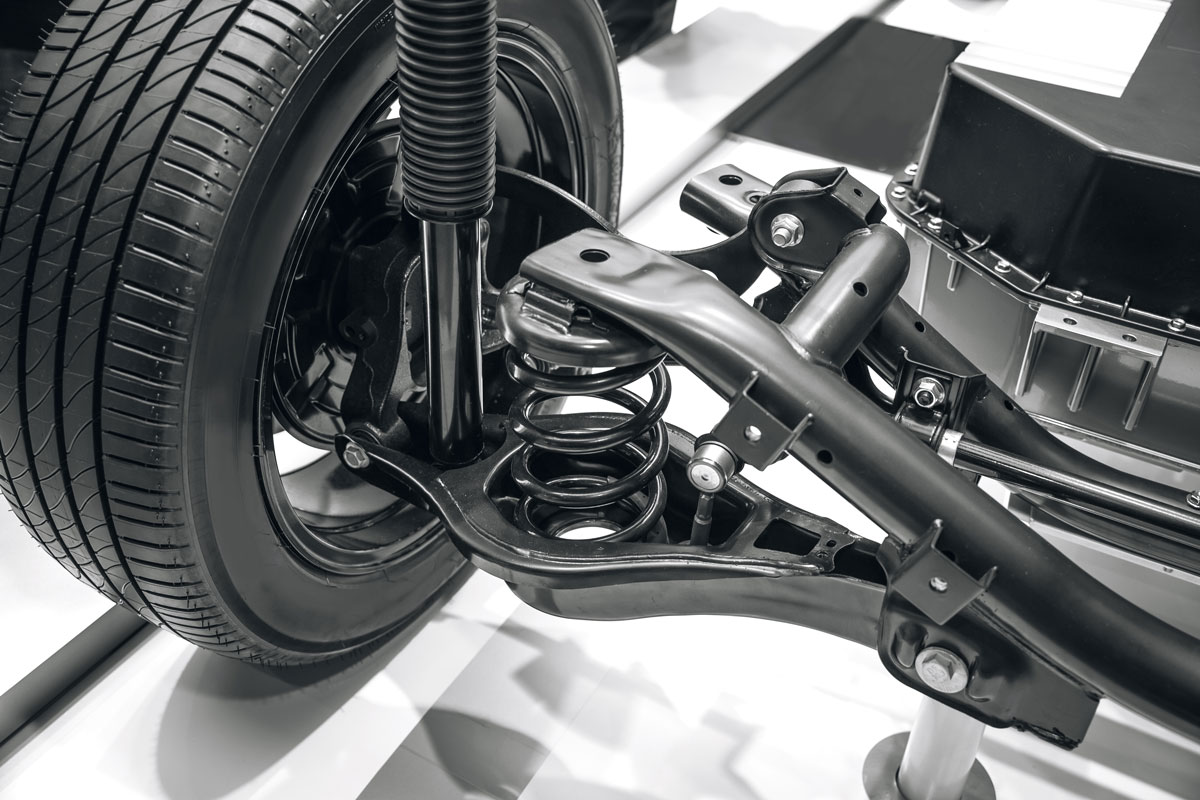
The suspension system is comprised of tires, springs, shock absorbers, connectors, and other components that link the vehicle to the wheel for smooth movement. Shaking when speeding up is an obvious sign of broken, imbalanced, rusty, worn, or torn apart.
You must conduct a thorough inspection to pinpoint the cause of a suspension problem. It could only be one or multiple parts, that is why we highly suggest paying a visit to a car technician. Have your vehicle assessed and make the necessary replacements.
Misaligned wheels
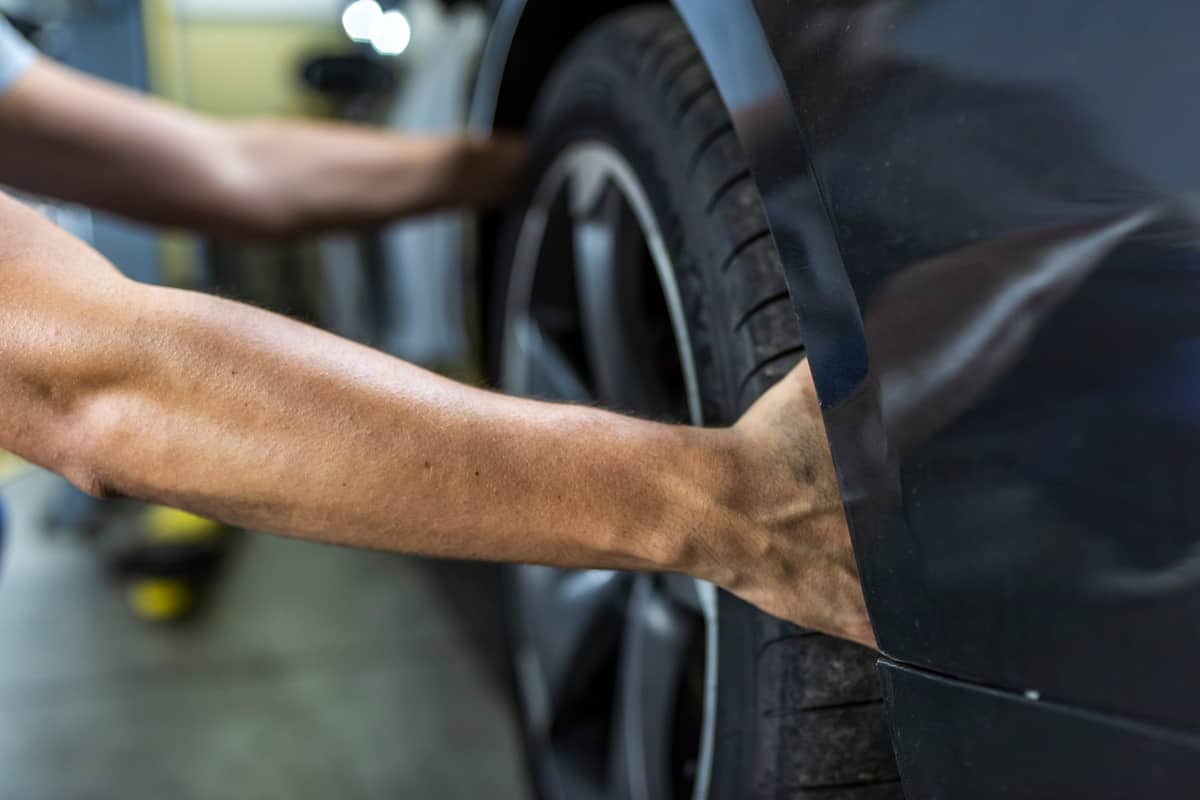
Imbalanced and misaligned wheels are the most common reason for shaky steering wheels. This will cause your automobile to shake specifically upon hitting the 50 to 60 miles mark but may eventually lessen at higher speed.
Check the inflation and tread lines to confirm your tire's the culprit. Ensure all tires are sufficiently aired since a flat tire will cause a lack of balance, making things hard to maneuver. Pay attention to uneven tread lines; if it is, have them rotated or replaced as needed.
Broken Motor Mount
Motor mounts firmly attach the engine to the vehicle's frame. Problems with these are the most common reason for excessive vibrations and least for the steering wheels to shake. In some severe cases, when a mount fails, the vehicle starts to bounce around, making it extremely difficult to control.
Regularly check the motor mount and replace broken ones. Don't try to patch things up, as it may only cause more severe problems. Remember that the other mounts will bear more load due to the faulty piece. And the longer you delay the replacement, the higher the chance the other will eventually fail.
We recommend having your vehicle checked by a car technician. Conduct regular maintenance and keep track of parts that needs replacement. As tempting as it may be, don't meddle with parts and the internal mechanism unless you are confident and knowledgeable about it.
Other Causes and Solutions Of Shaky Steering Wheel
If none of the reasons above apply to your situation, other causes may exist. You might want to check the listed parts to be sure, although these don't usually happen when speeding up.
Faulty Wheel Bearings
The wheel bearing allows you to make smooth and effortless turns. It is connected to the axle, which directly impacts the drive shaft. A broken, worn, or rusty bearing cause friction, which can be felt as vibrations in the steering wheel. The easiest solution is deep cleaning and a couple of drops of lubricant or parts replacement. If the problem persists, take your car to an auto repair shop.
Broken Brake Rotors
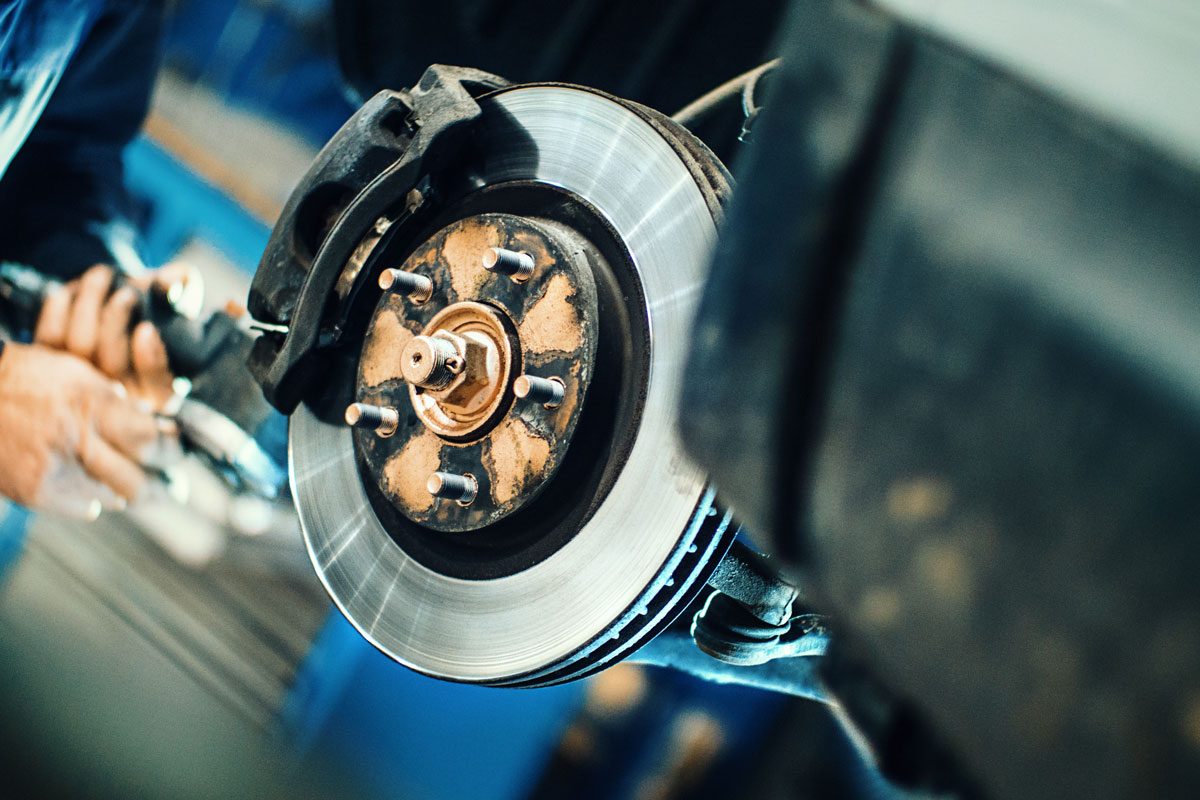
Brake rotors are vital in slowing down your vehicle. Rotors in excellent condition instantly stop or slow down when you hit the brakes. These usually last 30,000 to 70,000 miles but must be checked every 12,000 mileage. Once the rotors fail, you must replace them; leave the task to the experts to ensure the proper replacement job. It is also recommended to replace the rotors by pair regardless for efficient performance.
Blocked Air Filter
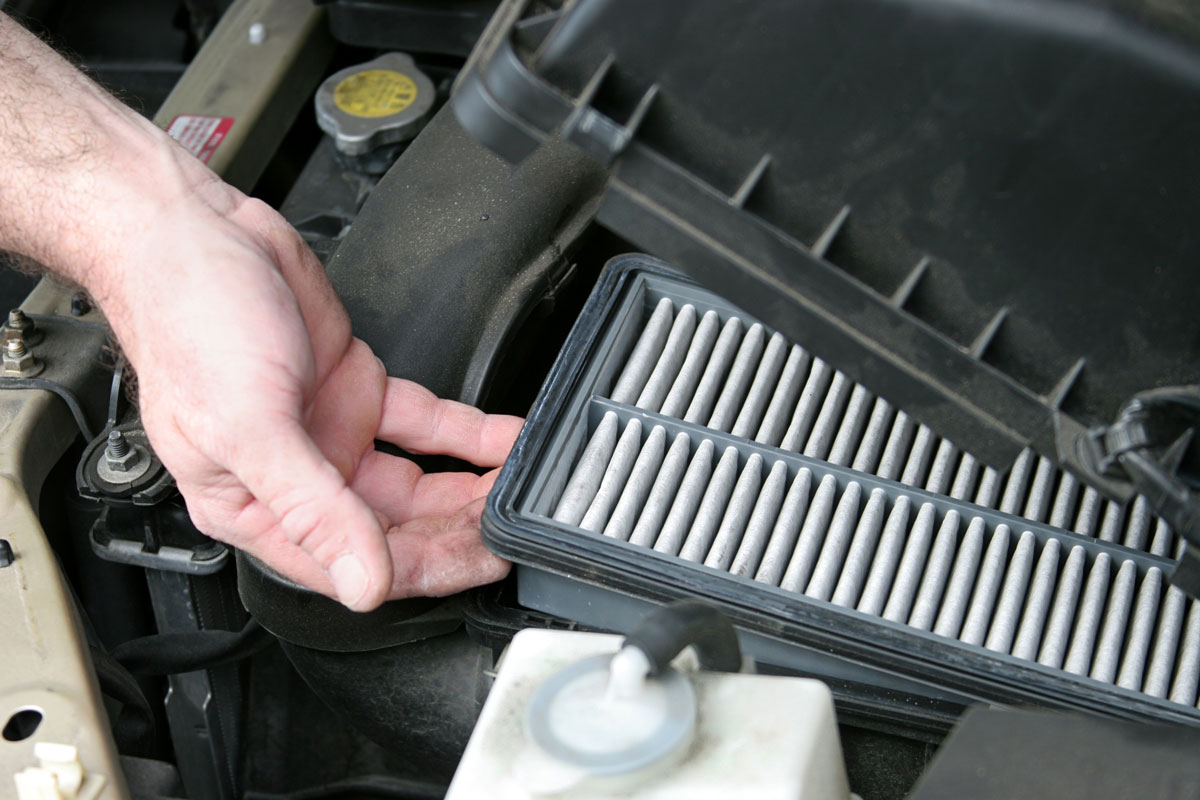
This may seem like a long shot, but cleaning or replacing a clogged air filter can quickly solve your problem. A dirty filter may cause a sudden drop in engine power because it hinders the fuel-air mix in the combustion chamber. This part is often found on the front of your car; it is safe to be hosed down and vacuumed.
Frequently Asked Questions
What is a Death Wobble
Death wobble is an uncontrollable vibration or shaking of vehicles. It is usually caused when rapidly rotating the steering wheels or hitting a bump. This is often experienced by Jeeps, 4x4s, and trucks when driving at 40 miles per hour and higher ranges.
How To Handle Death Wobble
Take note of the following steps to reference how to handle the death wobble.
- Don't panic, and keep your hands on the steering wheel
- Grip the brakes lightly and try to slow down the vehicle
- Pull over and stop the car in the area or lane you are in
- Avoid sudden movement like lane changing as it may cause your vehicle to topple over
- Call for assistance
Is It Safe To Drive With Shaking Steering Wheel
Whether you experience this shaking at certain speeds only or regularly, it is not safe to drive in this situation. You can quickly lose control of your car and cause harm to yourself and others. Park and stop somewhere safe and call for assistance. The general rule is don't drive any vehicle unless it is in good working condition.
How Much Does It Cost To Fix Shaky Steering Wheel
Replacing the steering wheel itself will only cause you around $70 to $75, excluding labor costs and depending on the model. However, the price of fixing the underlying issue of why it is shaking may cost you a bit more.
Tires
Local gas stations can refill the air for as low as $.25 to $1.50 per tire. You can also buy your air compressor for $50-$150. It is common knowledge you must replace your tires regularly. Single standard size for regular-sized vehicles may cost you $50-$200 and $200 to $350 for SUVs and larger ones like trucks.
Bearings
You can solve some problems with bearings with deep cleaning and lubricants, but if it needs changing, it can be good to have $150 to $800 in advance. This depends on whether you'll only be replacing the bearing or the real hub. The bearing is $50-$120, while a new hub is $200-$500. Labor cost ranges from $60-$300 and usually lasts 1 to 1.5 hours.
Brake
If your steering wheel shakes while slowing down, we can narrow the origin to break issues. It is relatively easy to fix but requires a hefty amount. The average cost of master cylinder repair is $200-$300, while the overall brake system can go up as high as $750 or more.
What Is The Difference Between Wheel Balancing And Wheel Alignment?
The wheels must be correctly positioned and leveled to ensure safety and smooth cruising. In layman's terms, wheel alignment is how the wheels sit when mounted to the car. Wheel balancing guarantees that the tire and wheel weight are proportional.
Conclusion
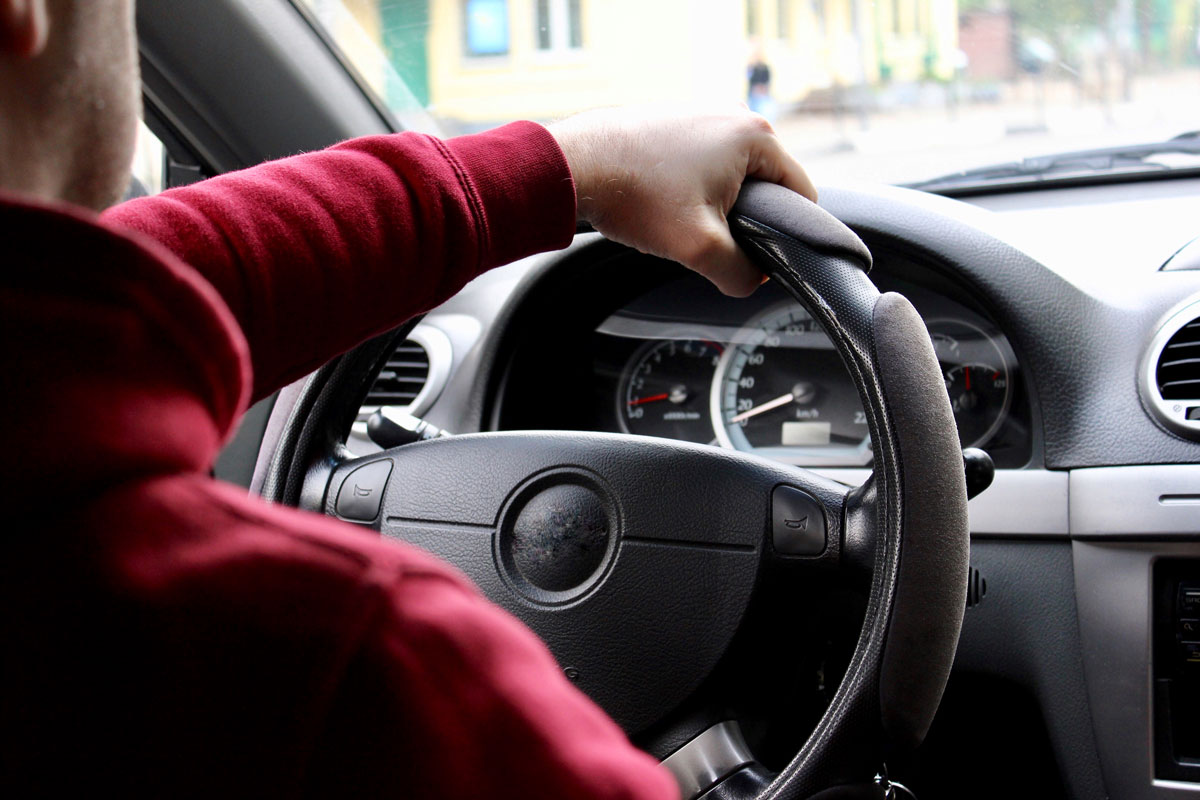
The driver's primary responsibility on the road is to secure everyone's well-being inside and outside the vehicle. This is why it is crucial to conduct regular inspections and maintenance to ensure efficient and smooth operations. You may need to spend a few hundred bucks, but no amount of money is worth your safety. When you're driving, you're not driving only for yourself but for others.
If you find this article helpful, check out these other related posts:
Steering Wheel Not Straight While Driving [Here's What To Do]
Chevy Cruze Jerking When Accelerating – What To Do?
Car Won't Accelerate When Pressing The Gas – What Could Be Wrong?
